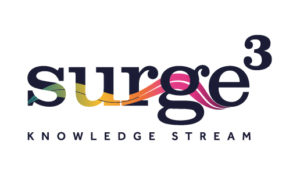Data-driven knowledge businesses are 23 times more likely to acquire customers than those which are not[1] and insight-driven businesses are growing at an average of 30% each year; and this year (pandemic aside) they would be taking $1.8 trillion annually from their less-informed industry competitors[2]. Businesses big and small sit on a mountain of underused data – the good news is that tapping this potential is not hard.
As the common refrain goes, data is the new oil. It’s easy to see the parallels – data, like oil once was, is a vast, largely untapped asset. In its raw form it can be messy, confusing and difficult to work with, but is immensely valuable once it has been extracted and processed.
However, the analogy can only be taken so far. Data, unlike oil, is effectively an infinite resource – with the total volume of data out there roughly doubling every couple of years. While known oil deposits are projected to run out in around 50 years, at the current rate the volume of data is expected to increase by a factor of over 30 million in that same time period.
Here’s an interesting thought … more data has been generated in the last ten minutes than ever even existed before 2003.
There is no sign of this data avalanche slowing down either. The “internet of things” means that in the not-so-distant future we may have every single electronic object generating data, and there may even be new types of data we haven’t even considered yet. It’s more important than ever for businesses to understand their data and, more importantly, what they can do with it.
Data has fostered new innovation, and new innovation has created more data! Amazon have changed the way we consume by using sophisticated AI recommender systems, which take data from all of their users to tell each individual what they should be buying or next, replacing the human curators they used in their earlier years.
Some companies have gone even further, turning the data they collect from their customers into their primary asset. We all know that Facebook and Google do not charge you money to use their various features, but instead collect data about you, which, when aggregated with millions of other users and sold to third parties is a far more sustainable and profitable business than trying to get people to pay a subscription to the services they’ve used for free, for years.
These companies are huge and therefore benefit from a massive user base who are constantly providing vast amounts of data which they can work with … and have developed many cool tools to interrogate it.
The volume of available data means that even the simplest of operations can benefit from at least dipping a toe into the data universe and tapping the value of the insight that lays within it. How an organisation uses its data will be a key point of difference between organisations that maximize their potential and those that do not. Really successful organisations will be knowledge-based organisations.
And you don’t necessarily need the latest technologies, or an army of data scientists, to take advantage of this data bounty. In our experience organisations sit on a treasure trove of under-exploited data, information and knowledge. This ranges from previously collected hard research data as well as behavioural or transaction data collected from a range of sensors to the relevant experience and market knowledge of key stakeholders within the business. Tapping into this enables an organisation to unearth nuggets of insight at a fraction of the cost of a new research/data collection project.
As far as existing data is concerned, you should ‘squeeze the orange’ for all it is worth.
From a purely consumer research/insight perspective – all too often businesses keep outputs and work product from previous projects but don’t see the value in the raw data – but it’s yours, you have paid for it and it can be put work. Now in today’s environment, the ground may have fundamentally shifted, and so what we learnt yesterday may not help us fully understand today – but by marshaling what we know, we can ensure that any new data that needs to be collected or areas to be explored are focused laser like on the issues at hand – short and sharp – we are not spending any time reinventing the wheel. This saves both money and time
An open mind, an inquisitive attitude and some creative thinking are all that’s needed to get started – as well as a capability that we like to refer to as ‘sense-making’ (Pirolli and Card 2005) … which is the ability to quickly get to grips with the wide and potentially overwhelming panorama of data, information and knowledge available … bringing this together into a coherent whole to inform choices and decisions
Knowledge based organisations must have the ability to integrate and synthesize the plethora of information that is now available, to harness this to the task of solving the problem. And while there may be some sort of quasi-scientific method that would deliver a solution – there isn’t time that there used to be to digest all this new information, the agile agenda means faster, leaner decision-making and so rethinking the classic approach to problem solving means becoming comfortable with leaner and creative ways of adding value.
Whilst we’ve touched on the benefits data has brought to big organisations, no business should feel that size is a barrier to entry in exploring the opportunities in data. In fact, it is the smaller organisations that might reap the biggest rewards – in relative terms at least – since intelligent use of data is more likely to offer a competitive advantage.
A longitudinal interventionist study conducted by UC Berkeley on a Café based in Copenhagen[3] demonstrated how detailed data collection– leading to data-driven decision making – could oversee an sixfold increase in turnover over a seven year period. This did not require and fancy software or expert data scientists – it was simply a matter of recording the numbers – having the right sensors in the ground – to gather actionable data that clearly expressed how the Café was performing against various KPIs and ensuring that the findings – and the implications of those findings – were acted upon. By embedding this ‘wide-angled lens’ approach into the ‘DNA’ of the organisation, the impact of decision-making was consistently understood in terms of data.
“For Sokkelund the implementation led to real-time data on operations e.g. sales per seat per day, or per customer, as well as customer retention data. Understanding this data is crucial; for example, when the chef decides to change the menu, or when tracking the effects of marketing. Having access to such small data makes it possible to track small improvements to the business model … these changes not only led to cost reductions, but lowered customer acquisition costs, improved customer retention and added new revenue channels”
This process was termed as a “small data transformation”, which highlights how really anyone who can utilize data to their advantage. ‘Small data’ can be just as powerful as ‘big data’ in the right context, and it’s about finding the right approach for your business, rather than chasing the latest and greatest trend.
Collecting and collating corporate knowledge isn’t hard. To help our clients on the journey to becoming knowledge-led organisations, Decision Architects have developed the Surge3 platform – which is a knowledge ecosystem bringing together what an organization knows into a single hub so that it can be efficiently and effectively collated, interrogated and analysed.
- It offers a system for collecting, collating and integrating raw market research data and the ‘product’ from market research projects, to provide a central hub where the ‘corporate research memory’ can be accessed, making ‘corporate knowledge’ visible and searchable
- It fosters collaboration between individuals and groups on areas of shared interest – by tagging ‘who has worked on what’. Users can identify colleagues with topic expertise, learning from their experience rather than ‘reinventing the wheel’
- It create new recombinant value by combining disparate data (from previous research studies), to create new information, knowledge and insight
Effective data integration and management is at the core of Knowledge Organisations – at a minimum actioning internally generated data – making it integral to decision making. Once you have this foundation, adding in additional streams of external data then provide a powerful platform from which you can build sustainable competitive advantage.
To find out more email neil.dewart@decision-architects.com
[1] https://www.mckinsey.com/business-functions/marketing-and-sales/our-insights/data-driven-marketing
[2] https://www.forrester.com/report/InsightsDriven+Businesses+Set+The+Pace+For+Global+Growth/-/E-RES130848



